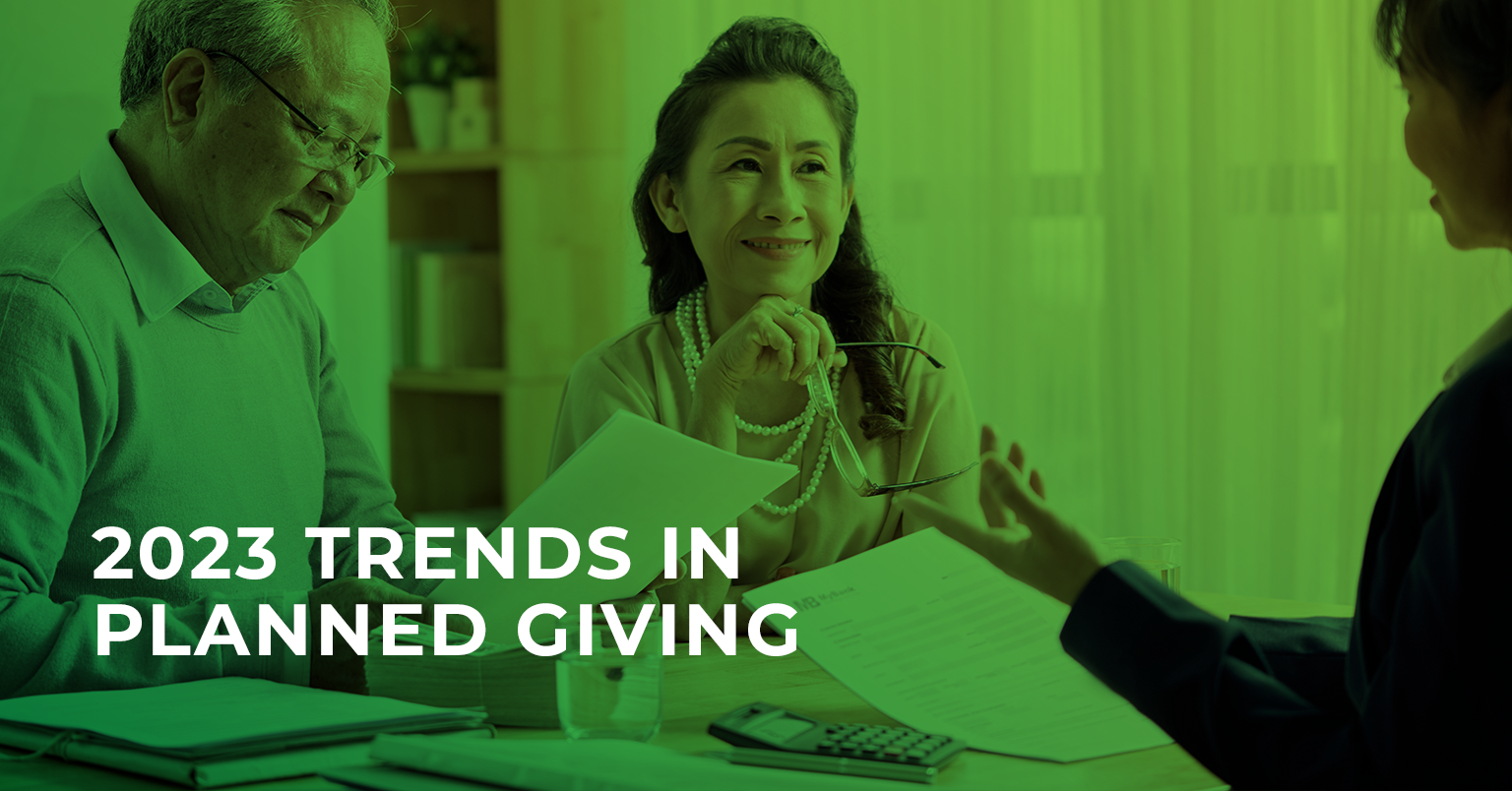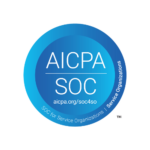
2023 Trends in Planned Giving
Are you studying the latest trends in philanthropy and the nonprofit sector? Having a better understanding of the philanthropic landscape makes it easier to navigate and develop strategies in how we approach our work. While looking at your own organization’s data is also important, there are industry-wide resources and data available to help us along the way.
Recently released reports highlight nonprofit trends that can help guide our work in this rather tumultuous post-pandemic economy. For example, the Giving USA 2023 report revealed that despite a year of market volatility, sharp increases in inflation, and economic uncertainty, Americans gave an impressive $499.33 billion in 2022—down slightly from last year by 3.4% (10.5% when adjusted for inflation). This shows that despite the challenges, Americans are overall still passionate about supporting charitable endeavors.
I keep these overall trends in mind as I create strategies on how to approach my work in planned giving in the coming year. Below are a few key trends that I’m considering for 2024:
- Giving by bequest continues to grow.
According to Giving USA, gifts by bequests represented 9% ($45.60 billion) of all giving in 2022. This shows an increase of 2.3% from the previous year. If you’ve been following along with my blog series, you have learned that bequests are foundational to any planned giving program. This tells us to focus on making it easy for donors to make a gift to your organization in their will or trust. Provide helpful tools and resources, perhaps on your website, and educate your donors on their options. Many folks continue to be concerned about rising inflation and stock market volatility, so they may be more open to consider deferred gifts such as bequests or beneficiary designations, that require no cash commitment today but still provide support for your organization’s mission.
- Individual giving is down.
According to the same report, charitable giving from individuals (vs. from corporations and foundations) represented 64% of all charitable giving. This is a 6.4% decline (13.4% when adjusted for inflation) from 2021. And for the second year in a row, very large gifts (these “mega gifts” were defined by Giving USA as charitable gifts of $450 million and up) by some of the wealthiest Americans represented nearly 5% of individual giving. So, what does what this mean for planned giving? Like with securing larger major gifts, it will be important to build long-lasting relationships with your donors. Focus on developing a strong pipeline that engages donors at all levels and be intentional about donor retention and stewardship. For more, see last month’s post by fellow GOBEL subject matter expert Ann Fisher about the importance of investing in relationship building.
- Donor Advised Funds (DAFs) continue to grow.
The 2022 DAF Report noted, “Donor Advised Fund donors were highly active in 2021…Grants from DAFs to qualified charities totaled an estimated $45.74 billion, representing a 28.2 percent increase compared to 2020, which itself was 28.3 percent higher than in 2019.” And according to the National Philanthropic Trust 2022 DAF Report, there is an estimated $234 billion currently held in donor advised funds. To take advantage of this data, identify your DAF donors and let them know how they can support you now through their DAF. Also, make it easy for them to recommend a grant to you from their DAF. There are tools and various software options available to ensure a seamless process.
- The Great Wealth Transfer is here.
Between 2023 and 2045, it is predicted that $84 trillion in assets will be passed down to Millennials and Generation X from their Baby Boomer parents. Further, it is expected that nonprofits will see an influx of charitable contributions through 2045. As the Baby Boomer generation continues to age, make sure you are educating this part of your constituency on their planned gift options, the tax implications, and in considering inheritance planning for their heirs.
These were just a few high-level considerations from this year’s philanthropic trends, but I hope you find them useful in adapting the current trends and positioning your nonprofit to finish 2023 strong and start 2024 on a high note.
—-
Estate planning needs will differ based on personal circumstance and applicable state and federal laws. The information provided here is for educational purposes only and is not intended to provide and should not be construed as providing legal or tax advice. This is general information and should not intended to serve as the primary basis for tax-planning or investment decisions and is not a substitute for the advice from an attorney or financial advisor.
—-
ABOUT THE AUTHOR:
Fritzie Dizon is the Director of Estate and Gift Planning at Scripps Research in La Jolla, California. Fritzie began her career in fundraising as a Development Assistant in Principal Gifts at UC San Diego and then at the Birch Aquarium at the Scripps Institution of Oceanography. Before joining the team at Scripps Research, Fritzie worked with the Office of Gift Planning at Columbia University and Columbia University Irving Medical Center for 9 years. During her time with Columbia, Fritzie honed her knowledge in planned giving and learned to appreciate its impact and power in philanthropy. Her involvement in two campaigns at Columbia University provided unique experiences in the role of planned gifts as it relates to strategic planning, operations, donor relations and marketing.
Fritzie is a graduate of UC Irvine with a degree in Environmental Analysis and Design. She is also a graduate of the Nonprofit Management Graduate Program at the School of Professional Studies at Columbia University. Over the last five years she has also served as an Adjunct Associate Instructor for the School of Professional Studies at Columbia for the Marketing Strategies and Introduction to Planned Giving courses.
When Fritzie isn’t working, traveling, or reading on the beach, she enjoys being an auntie to her four nieces and nephews (her favorite role!).
—-
ABOUT GOBEL SUBJECT MATTER EXPERTS: GOBEL Subject Matter Experts are healthcare philanthropy professionals working in some of the top shops in the country, sharing best practices and insights. For more information about GOBEL’s Subject Matter Expert program, or to suggest a topic for coverage, email jmoody@gobelgroup.com.
